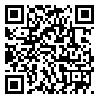Volume 5, Issue 3 (2025)
jpt 2025, 5(3): 1001-1011 |
Back to browse issues page
Download citation:
BibTeX | RIS | EndNote | Medlars | ProCite | Reference Manager | RefWorks
Send citation to:



BibTeX | RIS | EndNote | Medlars | ProCite | Reference Manager | RefWorks
Send citation to:
Mohammad Ghorbanian H, Ghane S. Study and Criticism of Frege's Five Arguments Against Psychologism in Logic. jpt 2025; 5 (3) :1001-1011
URL: http://jpt.modares.ac.ir/article-34-81209-en.html
URL: http://jpt.modares.ac.ir/article-34-81209-en.html
1- Department of Philosophy, Faculty of Literature and Humanities, University of Isfahan, Isfahan, Iran , h.ghorbanian@ltr.ui.ac.ir
2- Department of Ethics, Faculty of Theology and Islamic Studies, University of Qom,Qom,Iran
2- Department of Ethics, Faculty of Theology and Islamic Studies, University of Qom,Qom,Iran
Abstract: (297 Views)
Frege always sought to present logic as a normative science, belonging to a timeless and placeless realm, distinct from empirical sciences, particularly psychology, which is inherently descriptive. In most cases, he adopts an anti-psychologistic approach, and his arguments are not explicitly stated. In this article, five of Frege’s arguments against psychologism have been reconstructed by studying his original texts. Since understanding these arguments is impossible without considering his definition of number as the subject of arithmetic, it is first shown how, according to Frege, a number must be defined as an objective entity. It is then demonstrated that Frege substantiates his position by distinguishing between the psychological origins of a proposition and its justification and proof, considering the concept of number as impersonal, differentiating logical laws from empirical laws, distinguishing between “what is true” and “what is held to be true,” and showing that a correct understanding of equality is only possible by regarding the concept of number as objective. However, Frege’s critics argue that by eliminating criteria for understanding meaning and disregarding the criteria for correct usage among language users in a linguistic community, he has omitted a significant part of the meaning of logic and reasoning.
Article Type: Original Research |
Subject:
Logic and Philosophy of Logic (Analytical)
Received: 2025/06/2 | Accepted: 2025/07/3 | Published: 2025/05/31
Received: 2025/06/2 | Accepted: 2025/07/3 | Published: 2025/05/31
Send email to the article author
| Rights and permissions | |
 |
This work is licensed under a Creative Commons Attribution-NonCommercial 4.0 International License. |





